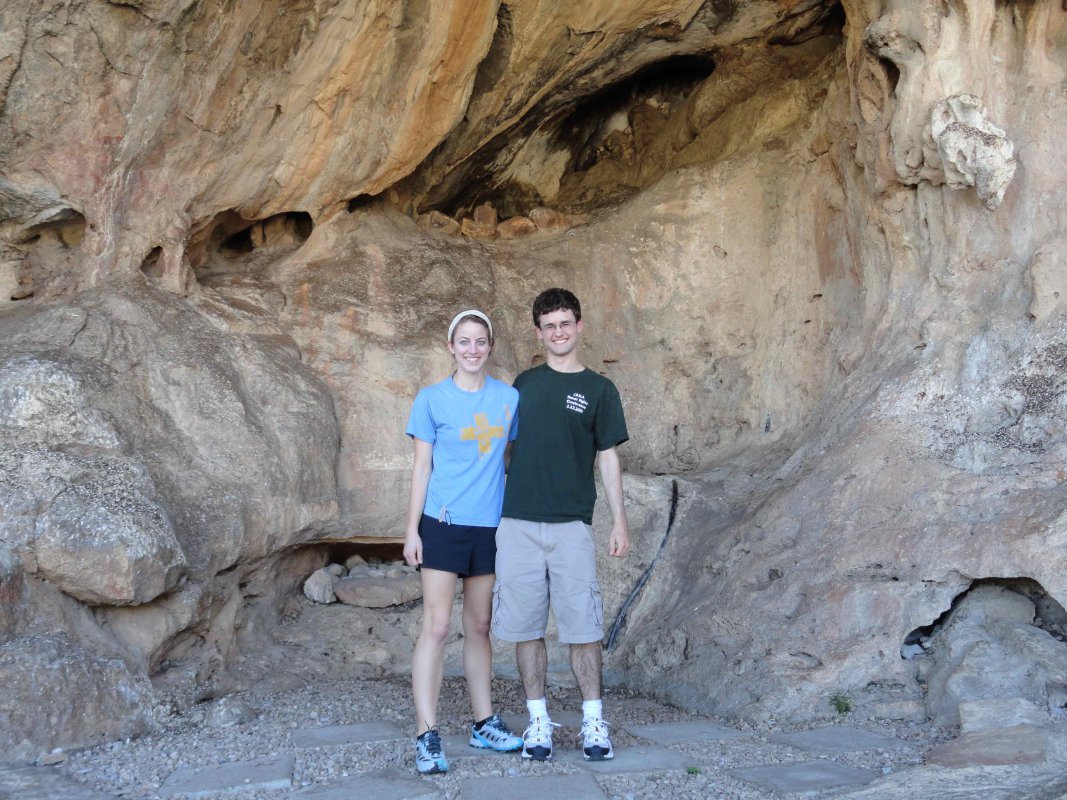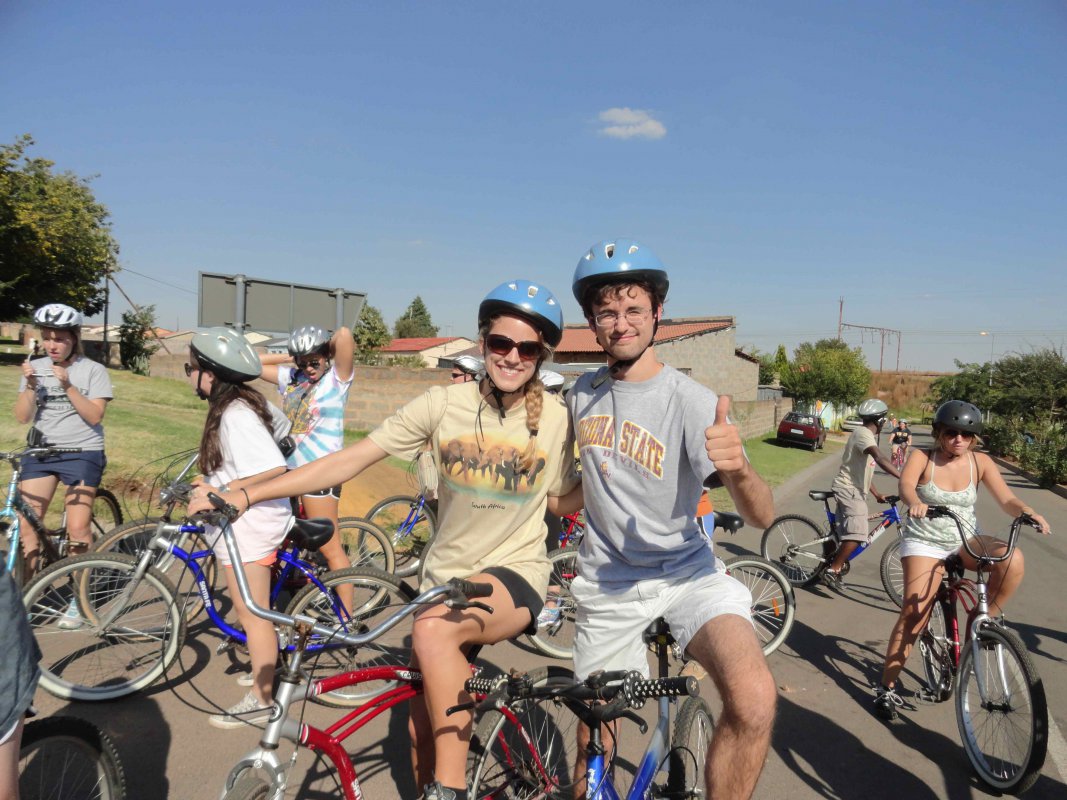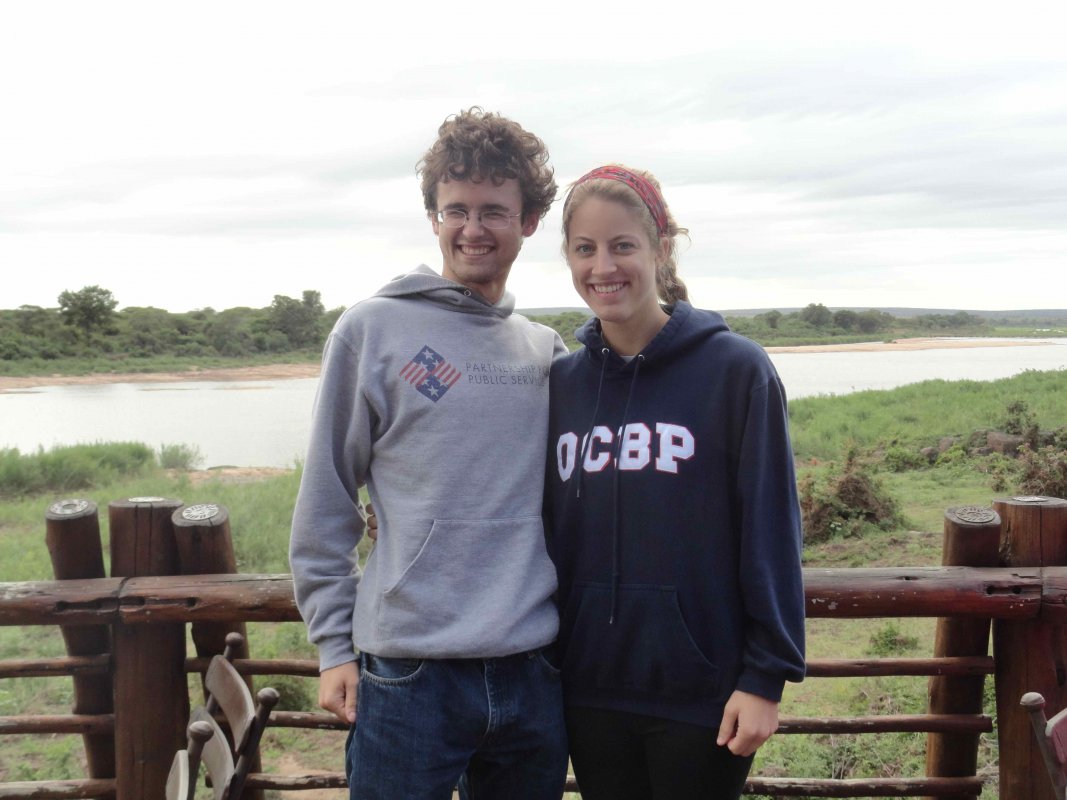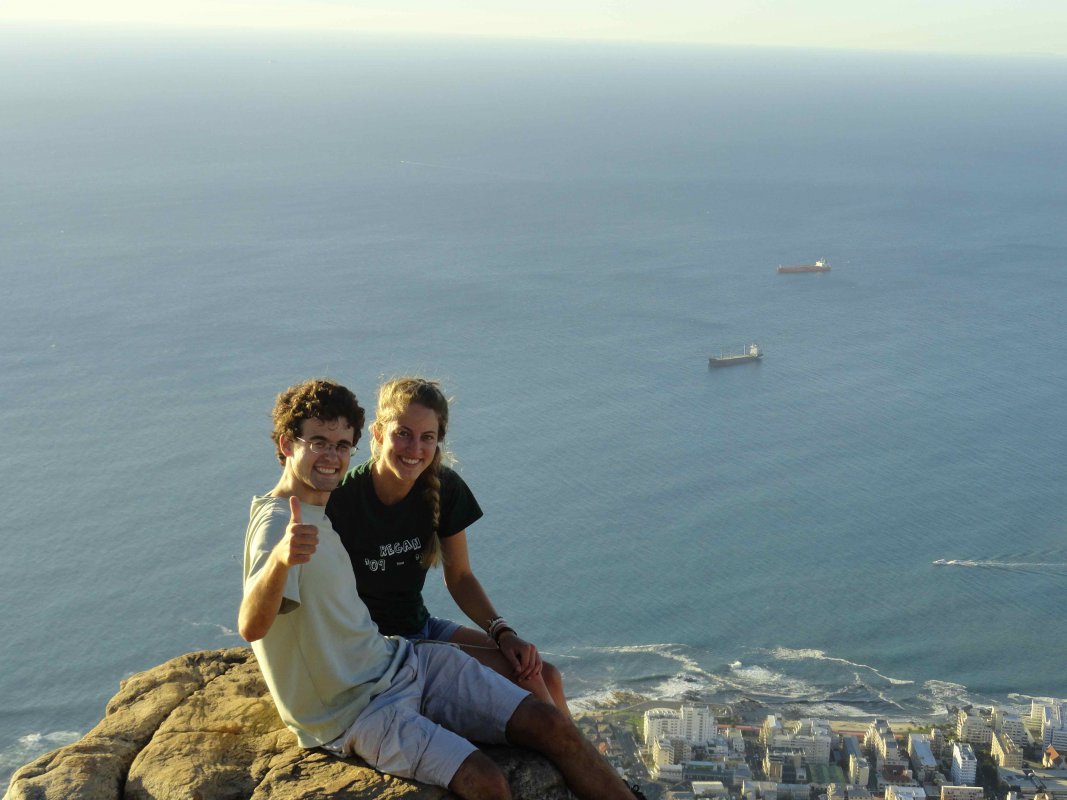Top Five Reasons to Select the Program
- Cape Town is, without a doubt, one of the greatest cities in the world. You've got the twin benefits of stunning natural beauty (beaches and mountains) and a vibrant, friendly city with lots of fun bars, great restaurants, and excellent tourist attractions.
- IES Cape Town treats its students really well. There are two major multi-day excursions each semester: they take you along the Garden Route at the beginning of the semester, and then to Kruger National Park (where you go on a jeep safari and see lions, elephants, giraffes, and much more) and Johannesburg over the mid-semester break. These excursions aren't mandatory, but they're heavily subsidized: a small fee covers airfare, hotels, meals, and once-in-a-lifetime experiences. There are also day trips to various places around Cape Town: a township, Robben Island, the Cape of Good Hope, etc. Finally, the staff is very friendly and capable, and more than willing to help out with anything you need.
- South Africa is still very much a developing country, so spending a semester there will certainly broaden your horizons and give you a better idea of what life is like outside of the comforts of the Western world. That said, it's politically stable and has modern infrastructure, so it's still a safe place to study.
- Because South Africa is so ethnically diverse, you'll get an excellent cultural experience, far beyond what you'd get in Europe. The country has eleven official languages! At the same time, everyone speaks English, so you can study here without having to learn another language (although taking a language class at UCT is a great way to make the most of your time here).
- You'll take one class through IES, but for the rest of your classes you'll be enrolled at UCT and have access to their extensive course catalog. Unlike a lot of study abroad programs, it's pretty easy to find courses that fit your major.
What I Wish I Would Have Known Before I Went
- Thanks to a very favorable exchange rate, you'll find that Cape Town is significantly cheaper than other study abroad destinations (especially Western Europe). However, I still ended up spending more money than I expected. The biggest unexpected expense for me was transportation. Although Cape Town does have a Metro, it's not particularly reliable, it closes at 9 PM, and IES recommends not riding it after dark (though it's safe during the day). Plus, lots of attractions in the city aren't located near stations. What this means is that you'll be taking cabs pretty much every time you go out, which adds up quickly.
- Contrary to what people will say when you tell them where you're going, you will NOT get killed in Cape Town. Seriously. UCT is located in a very safe neighborhood and the IES residences have excellent security. You'll be fine if you follow rules that you would follow in any large city: avoid walking alone at night, know where you're going and walk with purpose, and stay out of neighborhoods that IES tells you to stay out of. It's true that South Africa has a high crime rate, but most of it is concentrated in areas that you will never visit.
- Pack warm clothing. Winters are mild compared to DC but it does get chilly. Also, don't forget that the seasons are reversed because it's the Southern Hemisphere; when I arrived in January it was the middle of summer.
- A lot of students come to UCT expecting to be able to slack off because it's in a developing country. It is, of course, possible to take all easy classes. However, if you want to take classes within your major, expect to work hard. UCT is very highly-ranked and students come here from all over Africa. Personally, I see this as a plus; employers and grad schools will be impressed that you maintained a respectable academic workload while abroad, and even though my classes are hard I still have plenty of time to have fun. But it's something that throws a lot of people off at first.
- You will need to learn to monitor your Internet use. Access is limited in South Africa due to underdeveloped infrastructure. IES will give you a voucher for about 1.3 GB per month, which goes very quickly even if you're just checking email and Facebook. If you run out you can buy more, but it's expensive. You get an additional 3 GB per month on the UCT campus, although academic sites like JSTOR are exempt from this so you have a little more leeway. YouTube and video Skype are pretty much out of the question unless you go to an Internet cafe. I found a few tricks to minimize my bandwidth usage: use the "basic HTML" version of Gmail, use the mobile version of Facebook, and turn off image viewing in your browser.
A Funny Story or Situation
"Why are they yelling at us?!?"
On my first morning in Cape Town, a few of my housemates took a walk to explore our neighborhood and find coffee. As we were walking down the main road, these ramshackle old vans kept zooming past us blaring their horns. Each of them had a guy leaning out the passenger side window yelling things we couldn't understand. It seemed like they were yelling it right at us so we were very confused. It turned out that these were minibusses, a common form of informal transit in Cape Town. The drivers honk their horns and yell out their destinations to attract attention. After a few days we didn't even notice it anymore, but it was certainly jarring on that first morning!
An Embarrassing Situation
Towards the beginning of the semester, IES took us on a tour of one of the townships. Townships are sprawling low-density suburbs into which Black and Colored (the two terms mean different things here) populations were forced to move during the apartheid era. Apartheid ended in 1994, but poverty and unemployment are still rampant in the townships, although many of them also have vibrant community life and a palpable sense of local pride. Anyway, at the end of our tour we visited an old run-down apartment complex that had originally been built for migrant workers. Each one-room "apartment" was smaller than my bedroom at home but has three permanent residents. We were invited to come into one of the apartments, which was quite an awkward experience as all three residents were there at the time and, as I said, it was tiny. It felt a bit too much like we were ogling them, but it was also a stark illustration of the stark contradictions that characterize South Africa, a country of both extreme wealth and extreme poverty.
The Teacher From Whom I Learned the Most
Beatrice Conradie does a very good job with the Natural Resources Economics course (ECO3009F). It's probably the hardest econ course I've taken, but it's also fascinating, pertinent to some major local issues, and a completely different way of looking at the field of economics.
Housing
I lived in a house with four other Americans plus a UCT student who served as our RA. The house was very spacious and comfortable, with two bathrooms, a huge common area, two refrigerators, and a backyard (with an avocado tree!) All of the other IES students were in apartments about 50 yards away, so naturally the house became the primary social hub. I had my own room in the house, but the students in the apartments had roommates. Some apartments were nicer than others so I'd recommend asking for the house if possible.
Student Profile:
|





